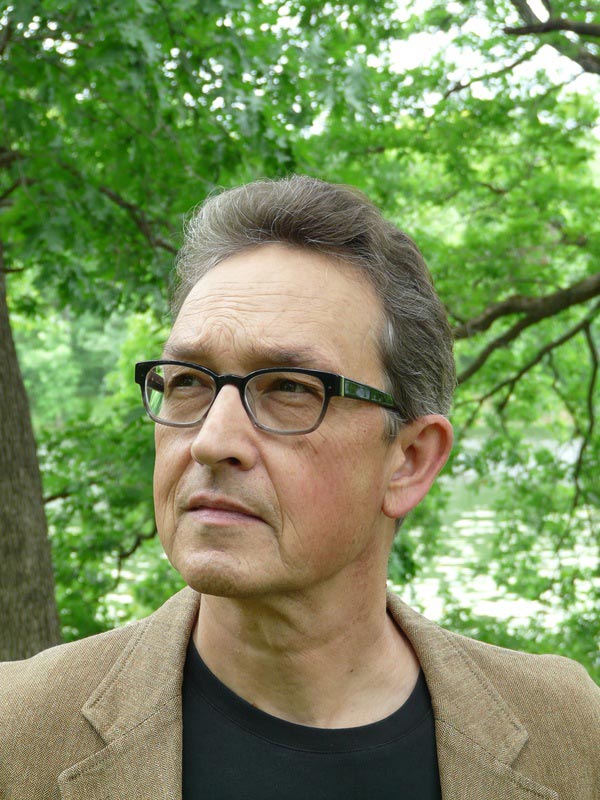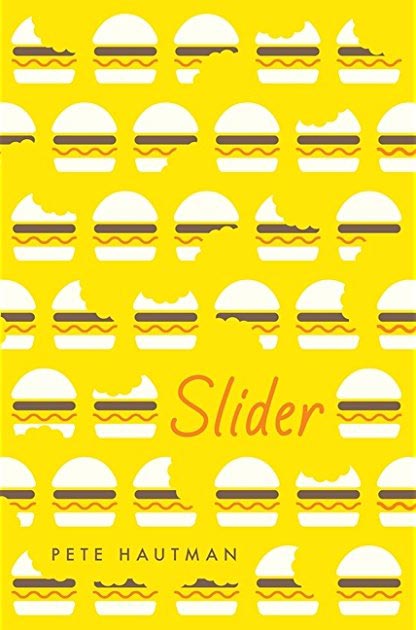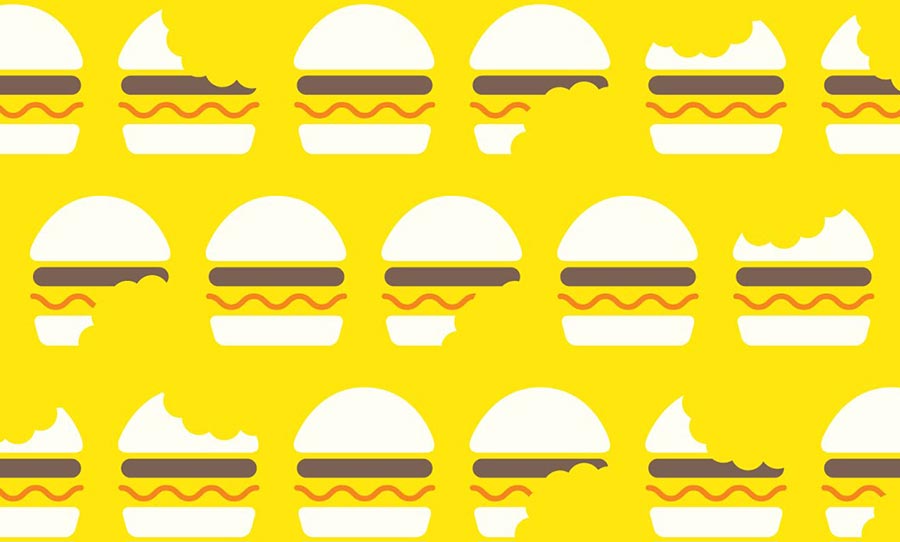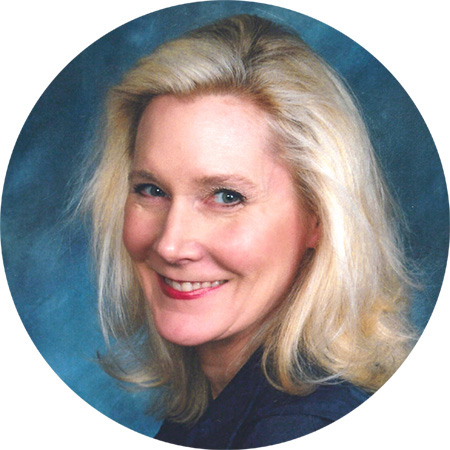Pete Hautman is a prolific and celebrated author who has won, among other prestigious awards, the National Book Award for Young People’s Literature for his novel Godless in 2004. He has written a dozen works of fiction for adults, twice that for tweens and teens, and more than one hundred nonfiction science and nature books for children under the pen name Peter Murray.

Pete Hautman (photo credit: Kaia Nao)
His latest release, Slider, was my first Hautman read, and it won’t be my last. Slider is a quirky, warm upper middle grade novel about a (sort of) regular kid named David Miller, who, untrained, can eat an entire pizza in less than 5 minutes and who lives his life sandwiched between a needy, overachieving sister and an autistic little brother, who the family refuses to label as autistic so they call him “Mal.”
There’s a lot going on in Slider. From eating contests and getting duped by cheaters to caring for a special needs brother to watching young love take shape, Slider offers a mixed bag of storylines. Somehow, though, Pete ties it all together. Beautifully.

Candlewick (September 12, 2017)
Reading Slider is a little like hanging out with your best friend—there’s comfort and safety, meandering conversations, absolutely no judgment passed, sparks of insight, juicy gossip, and endless dry and quirky humor only understood by the two of you.
Engaging in a conversation with Pete Hautman is as delightful as reading his book was. I interviewed Pete recently via email. The interview follows below.
You can purchase Slider and all of Pete’s books at booksellers nationwide and online.
An Interview with Pete Hautman
In that sense, I am Egon Belt, but Egon Belt is nothing like me. It’s very much like acting. In fact, when young people ask me how they can become a writer, I often recommend that they get involved in theater.
The ability to understand the feelings of another—empathy—is what differentiates the greats from the grunts in each of these professions. It’s no surprise to me that your characters are so magnificently developed and unique. You engage in the best practices of the best empathizers.
As for Egon Belt, it just sounded like a solid, memorable name.
You’ve written over one hundred nonfiction books for children under the name Peter Murray, covering everything from An Inside Look at Skeletons and Gorillas to The Space Shuttle and The Story of Marie Curie. The breadth you covered is astounding—I can only imagine the interesting factoids that effortlessly pop out of your mouth at any given moment. I’m jealous—truly jealous. It makes me want to read every one of them. But I’m curious: why does a guy who doesn’t finish college then go on to research and write dozens of books on essentially every topic in the physical world?
In 1996, I wrote a time-travel novel (Mr. Was), which covered about seventy years of the protagonist’s life. Most of the action happened while the character was a teen. I was advised that I had written a “young adult” book. I didn’t know what that was, but fine—I had published a YA novel. This led to some school visits, and for the first time in thirty years, I entered a middle school. It was, frankly, terrifying. Memories! All those awkward, painful years I had worked so hard to forget came crashing back. And with them came the good memories. I began thinking about the experience of reading as a child, as a teen, and how the books I read back then shaped my thinking and my worldview. I thought, I would like to be a part of that. I would like to write for the kid I was.
As for what I hope my readers take away from my books . . . I suppose I want to give them a glimpse of reality as seen through my eyes, in hopes that on a “cosmic” level it will bring us closer together. It’s my way of reaching out. I think that’s what art is for.
It’s not like gavage. We gladly consume.
You are a highly successful genre-buster. What advice would you give writers who want to move from one genre to another?
Thanks for sharing your story with us, Pete!



 Kristen Heimerl
Kristen Heimerl 